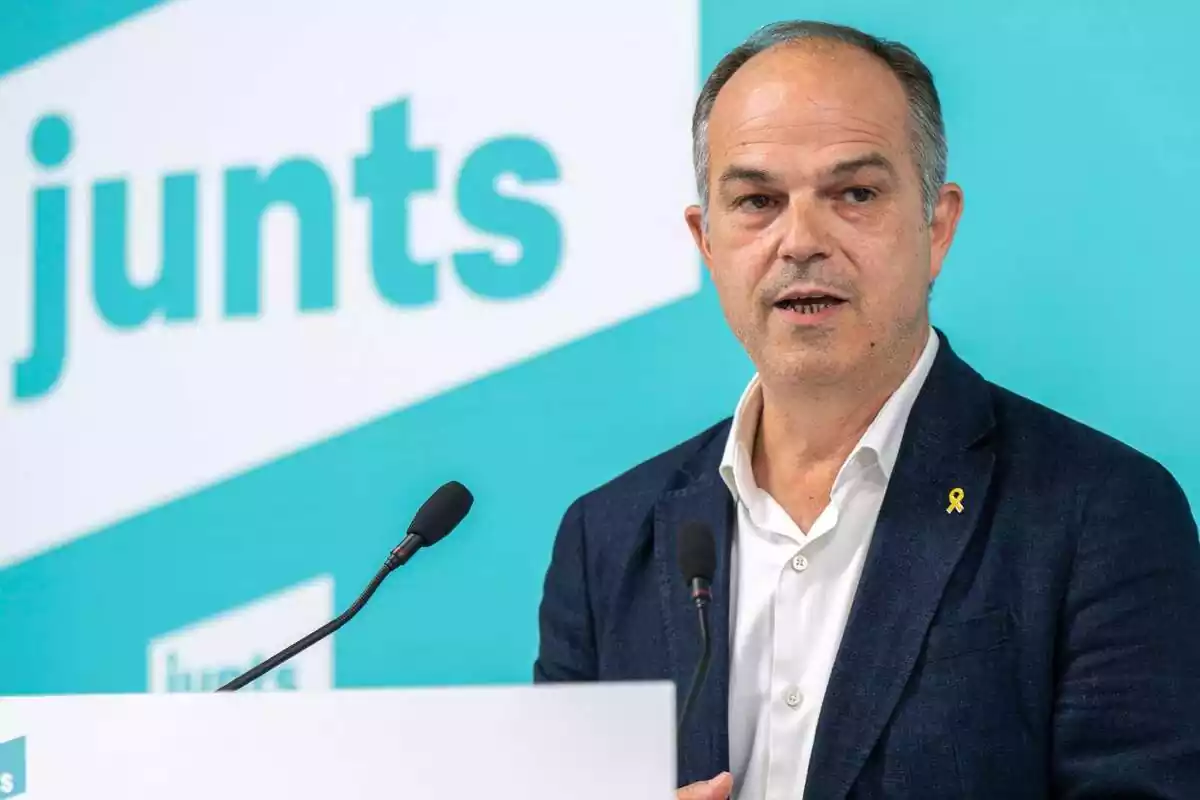
Aliança Catalana: The dilemma that Junts can no longer avoid
Carles Puigdemont's party is divided between staying in the pro-independence block or stepping out of its comfort zone
Artur Mas has opened (perhaps unintentionally?) Pandora's box. The former president defended in an interview the legitimacy of engaging with Aliança Catalana as a normal actor in Catalan politics. With these words, he has not only broken a taboo within Junts but has also opened the door for the first time to an understanding between both spaces.
Artur Mas's statements coincided with an article by Pilar Rahola against the demonization of Aliança Catalana. This has given rise to a theory that is not entirely far-fetched: The post-convergents might be paving the way for future agreements with Sílvia Orriols's party.

It is evident that the rise of Aliança Catalana caught Junts off guard, which, in the midst of decline, opted for mutiny. The competition for the same space, that of conservative nationalism, turned Orriols into Puigdemont's main obstacle to relaunch his project. So much so that he preferred to ally with antagonistic parties (PSC, ERC, Comuns, CUP) rather than approach AC.
Initially, this position was relatively comfortable due to the stigmatization suffered by Sílvia Orriols's party. It was easier to join the "anti-fascist pacts" than to risk being identified with the "far right." But things have changed rapidly in a very short time and now the scenario is very different.
The leadership of Junts begins to reconsider
First, Carles Puigdemont bet on being able to open a large nationalist space to become a dominant party again. But this has not only proven impossible but also highlighted Junts's difficult position, between a rock (the pro-independence bloc from PSC to CUP) and a hard place (Aliança Catalana).
Second, there has been a process of normalization of Aliança Catalana and its discourse. Orriols's group has not only ceased to be uncomfortable, but they are now on the rise in contrast to a pro-independence movement that continues to decline. The demonstration of this is the failure of the exclusionary tactics, which have only multiplied the Orriolists.
Third, remaining in the pro-independence bloc prevents Junts from differentiating itself from ERC and Puigdemont from Junqueras. This, in turn, strengthens Sílvia Orriols as the new leader of radical independence. Relying on Aliança Catalana would allow Puigdemont to relaunch his leadership and—who knows—perhaps eventually absorb Orriols.
Internal division
What is evident right now in Junts is a clear division between the woke sector of Junts and the conservative sector. People like Agustí Colomines and Aurora Madaula lead the offensive against the "far right," supported so far by the general secretary Jordi Turull. Puigdemont remains silent, however, and it is at least striking that people very close to him are now proposing rapprochement with Aliança Catalana.

It should be remembered that Artur Mas has become a strategic ally of Puigdemont in his strategic shift to the right. Pilar Rahola is also someone very close to Puigdemont's circle. It is evident that, if Carles Puigdemont is paving the way for a rapprochement with Aliança Catalana, the progressive sector will eventually succumb.
Promising future
What is also evident is that the rapprochement will not happen imminently. Especially because right now they have the hot potato of Ripoll on the table, where they will likely end up handing over the government to PSC. But despite that and the posturing of the likes of Colomines, there are already signs of a change in strategy.
In Junts, important voices have emerged questioning the success of the exclusionary tactics and suggesting the possibility of starting to vote on motions with AC. Additionally, in the next electoral cycle, Aliança Catalana could be a valuable ally to regain municipalities and provincial councils. Who knows? In the long run, Puigdemont might recover the Generalitat with Orriols while the pro-independence movement sinks into opposition.
More posts: